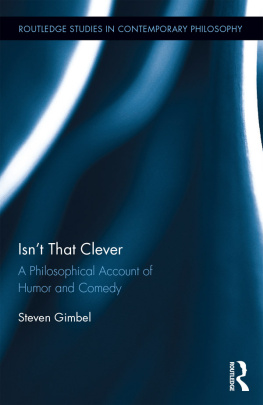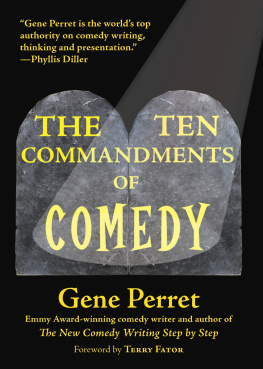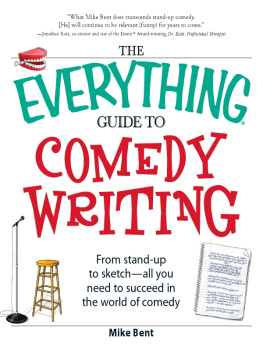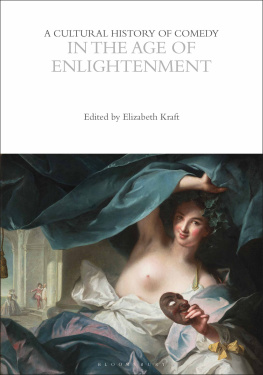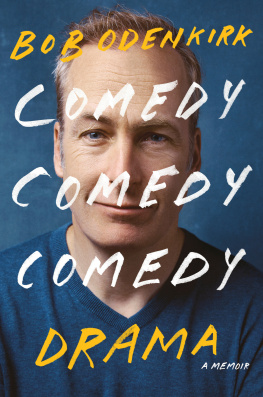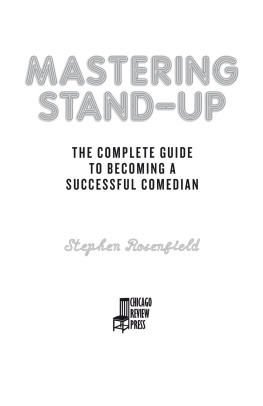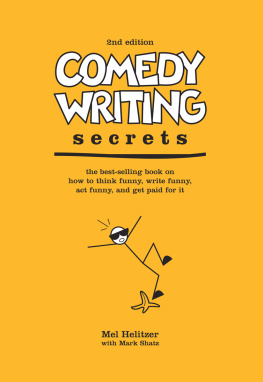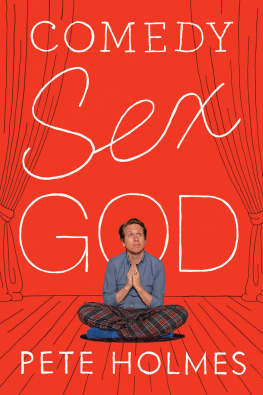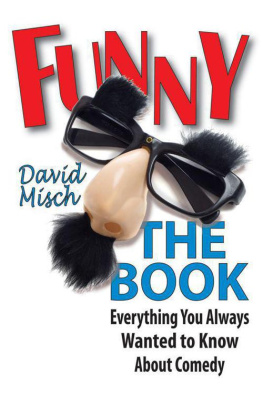Gimbel - Isnt that Clever: A Philosophical Account of Humor and Comedy
Here you can read online Gimbel - Isnt that Clever: A Philosophical Account of Humor and Comedy full text of the book (entire story) in english for free. Download pdf and epub, get meaning, cover and reviews about this ebook. City: Milton, year: 2017, publisher: Routledge;Taylor and Francis, genre: Romance novel. Description of the work, (preface) as well as reviews are available. Best literature library LitArk.com created for fans of good reading and offers a wide selection of genres:
Romance novel
Science fiction
Adventure
Detective
Science
History
Home and family
Prose
Art
Politics
Computer
Non-fiction
Religion
Business
Children
Humor
Choose a favorite category and find really read worthwhile books. Enjoy immersion in the world of imagination, feel the emotions of the characters or learn something new for yourself, make an fascinating discovery.
- Book:Isnt that Clever: A Philosophical Account of Humor and Comedy
- Author:
- Publisher:Routledge;Taylor and Francis
- Genre:
- Year:2017
- City:Milton
- Rating:3 / 5
- Favourites:Add to favourites
- Your mark:
- 60
- 1
- 2
- 3
- 4
- 5
Isnt that Clever: A Philosophical Account of Humor and Comedy: summary, description and annotation
We offer to read an annotation, description, summary or preface (depends on what the author of the book "Isnt that Clever: A Philosophical Account of Humor and Comedy" wrote himself). If you haven't found the necessary information about the book — write in the comments, we will try to find it.
Gimbel: author's other books
Who wrote Isnt that Clever: A Philosophical Account of Humor and Comedy? Find out the surname, the name of the author of the book and a list of all author's works by series.
Isnt that Clever: A Philosophical Account of Humor and Comedy — read online for free the complete book (whole text) full work
Below is the text of the book, divided by pages. System saving the place of the last page read, allows you to conveniently read the book "Isnt that Clever: A Philosophical Account of Humor and Comedy" online for free, without having to search again every time where you left off. Put a bookmark, and you can go to the page where you finished reading at any time.
Font size:
Interval:
Bookmark:

Isnt That Clever provides a new account of the nature of humorthe cleverness accountaccording to which humor is intentional conspicuous acts of playful cleverness. By defining humor in this way, answers can be found to longstanding questions about humor ethics (Are there jokes that are wrong to tell? Are there jokes that can only be told by certain people?) and humor aesthetics (What makes for a good joke? Is humor subjective?). In addition to humor in general, Isnt That Clever asks questions about comedy as an art form, such as whether there are limits to what can be said in dealing with a heckler and how to determine whether one comedian has stolen jokes from another.
Steven Gimbel is professor of philosophy and former Edwin T. and Cynthia Shearer Johnson Chair for Distinguished Teaching in the Humanities at Gettysburg College. His recent books include Einstein: His Space and Times and Einsteins Jewish Science: Physics at the Intersection of Politics and Religion.
85Perspectives on Ignorance from Moral and Social Philosophy
Edited by Rik Peels
86Self-Reflection for the Opaque Mind
An Essay in Neo-Sellarsian Philosophy
T. Parent
87Facts and Values
The Ethics and Metaphysics of Normativity
Edited by Giancarlo Marchetti and Sarin Marchetti
88Aesthetic Disinterestedness
Art, Experience, and the Self
Thomas Hilgers
89The Social Contexts of Intellectual Virtue
Knowledge as a Team Achievement
Adam Green
90Reflective Equilibrium and the Principles of Logical Analysis
Understanding the Laws of Logic
Jaroslav Peregrin and Vladimr Svoboda
91Philosophical and Scientific Perspectives on Downward Causation
Edited by Michele Paolini Paoletti and Francesco Orilia
92Using Words and Things
Language and Philosophy of Technology
Mark Coeckelbergh
93Rethinking Punishment in the Era of Mass Incarceration
Edited by Chris W. Surprenant
94Isnt That Clever
A Philosophical Account of Humor and Comedy
Steven Gimbel
Steven Gimbel

First published 2018
by Routledge
711 Third Avenue, New York, NY 10017
and by Routledge
2 Park Square, Milton Park, Abingdon, Oxon OX14 4RN
Routledge is an imprint of the Taylor & Francis Group, an informa business
2018 Taylor & Francis
The right of Steven Gimbel to be identified as author of this work has been asserted by him in accordance with sections 77 and 78 of the Copyright, Designs and Patents Act 1988.
All rights reserved. No part of this book may be reprinted or reproduced or utilised in any form or by any electronic, mechanical, or other means, now known or hereafter invented, including photocopying and recording, or in any information storage or retrieval system, without permission in writing from the publishers.
Trademark notice: Product or corporate names may be trademarks or registered trademarks, and are used only for identification and explanation without intent to infringe.
Library of Congress Cataloging-in-Publication Data
A catalog record for this book has been requested
ISBN: 978-1-138-08215-1 (hbk)
ISBN: 978-1-315-11263-3 (ebk)
Typeset in Sabon
by Apex CoVantage, LLC
To Rob Rynasiewicz and Peter Achinsteinthere, I did some real philosophy sort of
I would like to thank many people whose support and/or thought comments were very helpful with this projectChris Kramer, Sophia Stone, Richard Richards, Camille Atkinson, Lydia Amir, Lou Marinoff, Al Gini, John OConnor, Mar Bell, and the members of the Lighthearted Philosophers Society, especially Dave Monroe and Tom Brommage.
Devising a theoretical account of humor has been thought to be a fools errand. E. B. White (1941) said Humor can be dissected, as a frog, but the thing dies in the process and the innards are discouraging to any but the pure scientific mind (xvii). Sigmund Freud, in his book Jokes and Their Relation to the Unconscious, wrote the problem of the comic have proved so complicated and all the efforts of the philosophers at solving them have been so unsuccessful that we cannot hold out any prospect that we shall be able to master them in a sudden onslaught (181). Ted Cohen, in Jokes: Philosophical Thoughts on Joking Matters, says with respect to a theory of humor, I believe there could be no such theory (10).
Despite being so warned, I am fool enough to try. I present here not only an account of humor, but one that I contend gives rise organically to an aesthetic and an ethic for humor. If the view I argue for is correct, then it gives us not only an understanding of what humor is, but also a way to judge humorwhat is a quality jokeand to determine when and which jokes are morally acceptable to tell and enjoy.
The fundamental flaw that plagues the contemporary discussion in the philosophy of humor is the claimimplicit or explicitthat humor is essentially connected to laughter, mirth, or amusement. The first move made by virtually all humor theorists is to connect humor with positive emotional or physiological effects. Nol Carroll contends that the object of humor theory is that which generates the emotional state of comic amusement and experiences of levity (5). Michael Clark writes, There can be no adequate account of the notion of humor without one of the notion of amusement. For the humorous is so characterized in virtue of the human attitude or response to it (142). Victor Raskin contends that for his work in giving an account of humor, The goal of the theory is to formulate the necessary and sufficient conditions, in purely semantic terms, for a text to be funny (xiii).
The reason for this presupposition that humor is essentially and necessarily connected to laughter, mirth, or amusement is that philosophical analyses of humor are written by people who greatly enjoy both laughing at jokes and getting laughs by telling jokes. From their perspective, jokes are things, externalized texts that you hear at a dinner party and try to remember so that you can tell at the next dinner party or the contents of e-mails that you can use to annoy your relatives by mass forwarding it to everyone in your address book.
Jokes are pleasure nuggets delivered unto humanity by a loving comedic God. They are not seen as human-created works of art. Christie Davies holds that [Jokes] have no authors and travel mainly by word of mouth (4) and A jokes origins are collective and social (10). In the introduction to his book Semantic Mechanisms of Humor, Raskin apologizes for having to create some of the jokes he will analyze in his work, calling them artificial products, as if joke creation is something dirty and the fact that he is using jokes that have not been repeated makes them lesser jokes.
What has led me to undertake this philosophical inquiry is finding that these two presuppositionsthat humor is for mirth-generation and that jokes are authorless textsare both wrong. The realization occurred to me during my time trying to be a stand-up comic. To be clear, I am not citing this limited experience as a claim to any sort of authority on matters humorous. I am not and have never been a professional comedian. I worked the comedy open mic scene regularly in the Baltimore/Washington D.C. area for five years and worked a small handful of paid college shows as M.C., feature, or headliner. I have been on stage many times and have both killed and bombed. Some of the jokes used in this work are mine. Unlike Raskin, I do not apologize for a lack of philosophical rigor in using my own jokesI apologize just for the quality of the jokes. Theres a reason I didnt quit my day job.
Font size:
Interval:
Bookmark:
Similar books «Isnt that Clever: A Philosophical Account of Humor and Comedy»
Look at similar books to Isnt that Clever: A Philosophical Account of Humor and Comedy. We have selected literature similar in name and meaning in the hope of providing readers with more options to find new, interesting, not yet read works.
Discussion, reviews of the book Isnt that Clever: A Philosophical Account of Humor and Comedy and just readers' own opinions. Leave your comments, write what you think about the work, its meaning or the main characters. Specify what exactly you liked and what you didn't like, and why you think so.

